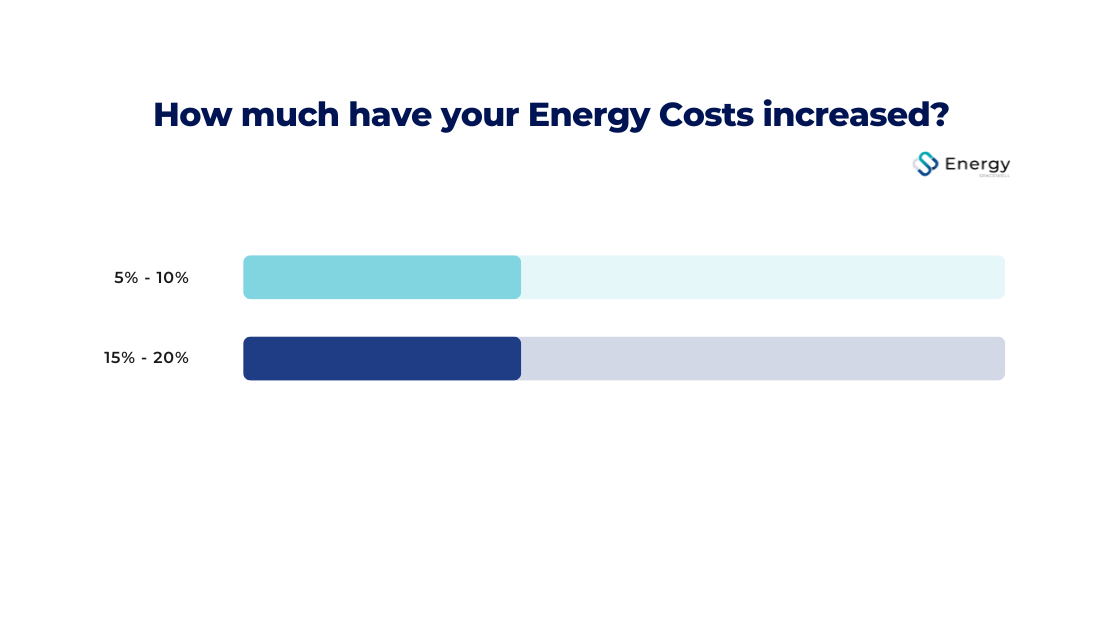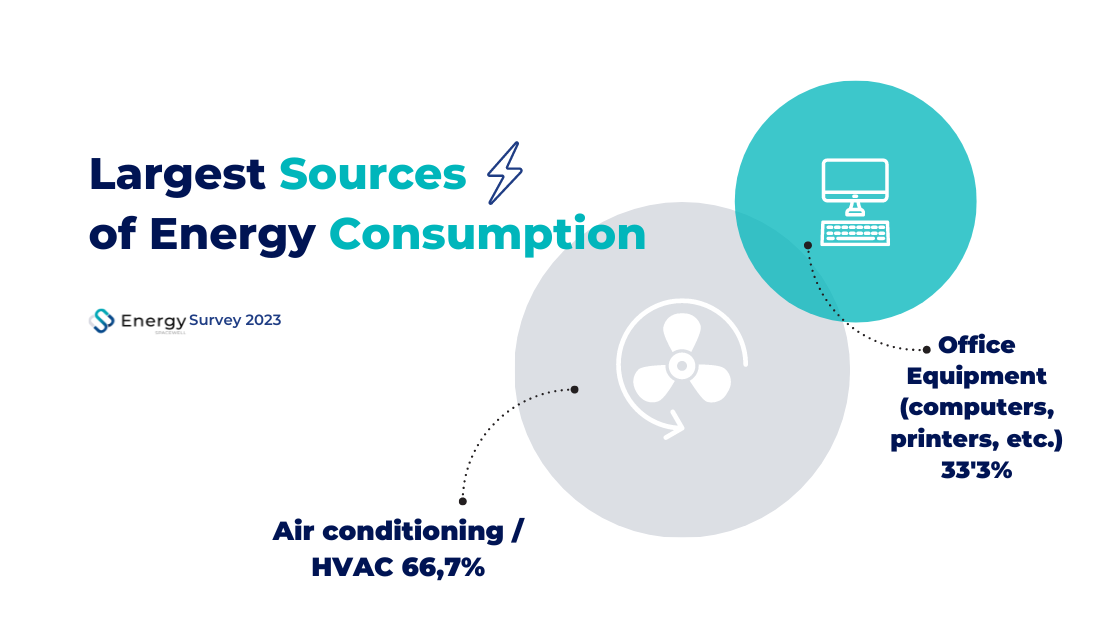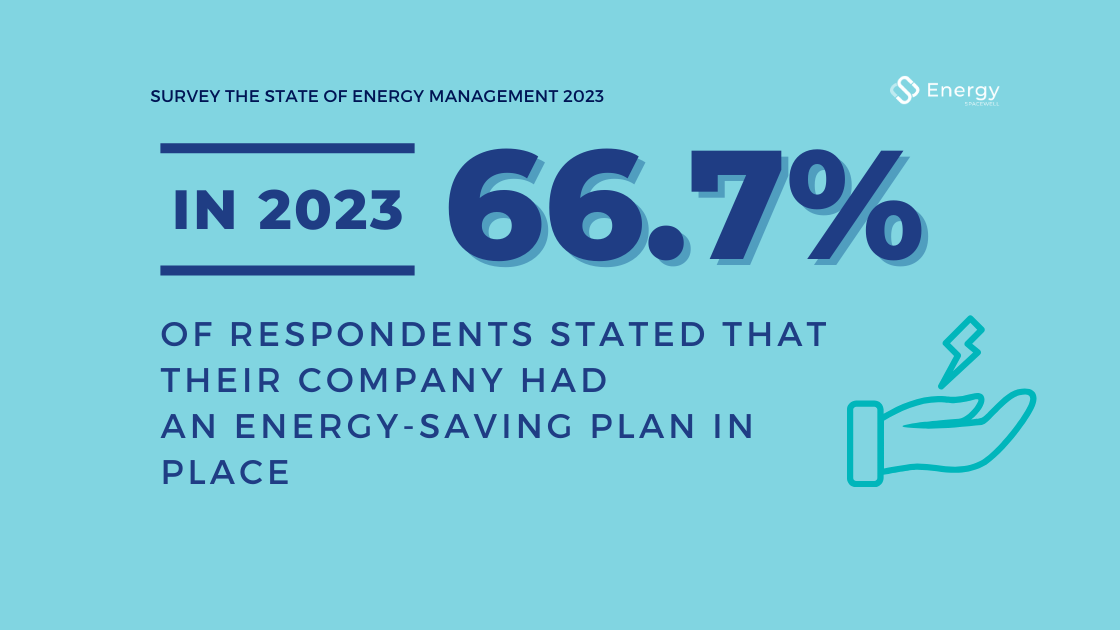Last December, we asked you to participate in our Energy Management survey and more than 200 of you responded favourably!
The survey targeted companies with direct connections to the energy sector, including ESCOs or energy suppliers, representing 38.60% of the participants. Other notable sectors include OEM/Hardware Vendors and Utilities, each accounting for 13.60% of the survey population, reflecting the integral role of technology providers and energy distributors in the ecosystem. The findings underwent thorough analysis and synthesis to provide a comprehensive overview of the perspectives of these professionals regarding the challenges and trends in energy management.
This article provides you with an insight of professionals regarding the current energy situation. For a deeper understanding of the challenges, priorities, and trends in energy management in 2023, we encourage you to freely download our energy report. This will serve as a guide for your 2024 strategies.
Energy Management Landscape in 2023
The 2023 Energy Survey reveals a collective effort to reduce energy consumption and adopt innovative practices for long-term sustainability and cost savings. A significant 47.70% of organisations use energy management software to monitor, analyse, and optimise performance, recognizing the role of technology in achieving energy efficiency goals.
Motivations vary, with 76.20% prioritising the reduction of high energy costs. Other driving factors include calculating carbon emissions, regulatory compliance, and pursuing certifications like ISO 50001. Overall, the survey depicts a dynamic energy management landscape, showcasing organisations’ ambitious goals to enhance efficiency, cut costs, and contribute to environmental sustainability.
Impact of Energy Costs
Predictably, the notable revelation for businesses in 2023 was the escalation in energy expenses. Whether driven by financial considerations, sustainability goals, or regulatory compliance. Organisations aspire to reduce and optimise their energy consumption.
Survey findings reveal an industry contending with significant energy cost spikes. Approximately 33.30% of businesses note a 15-20% cost increase, and another 33.30% report a rise of 5-10%. These statistics underscore the immediate need for organisations to adopt measures addressing the financial implications of escalating energy expenses.
The escalation in costs has directly influenced how companies handle energy management, impacting their consumption strategies. In response, Energy Service Companies (ESCOs) play a crucial role in assisting businesses in attaining their energy efficiency objectives. According to the survey report, 76.20% of ESCOs have witnessed a surge in the number of projects undertaken in 2023.
Main Sources of Energy Consumption
The survey findings show that 66.70% of respondents identify air conditioning and HVAC systems as the main sources of energy consumption. Office equipment follows at 33.30%, emphasising the necessity for specific strategies to address these notable energy drains.
In response to the energy crisis and rising prices, a majority of companies are proactively addressing their energy costs. Strategies such as measuring and verifying energy savings, real-time energy monitoring, and energy conservation measures are widely recommended and implemented, reported by 61.90% of participants.
Energy Savings Plan
The 2023 Energy Survey provides a comprehensive look at energy savings plans within organisations, highlighting a recognition of structured energy management’s benefits.
Approximately 66.70% of respondents are actively implementing or planning energy savings plans, emphasising the importance of cost savings and environmental impact reduction.
Key measures include real-time energy monitoring and adopting energy-efficient technologies for informed decision-making and energy optimization. Effectiveness relies on demonstrating financial and environmental benefits, positioning organisations for stakeholder support and continuous improvement.Despite commitment, varying effectiveness underscores the need for robust implementation strategies, reliable measurements, and clear communication of benefits.
The State of Energy Management Conclusions
As you may have discerned, it is now imperative for numerous companies, irrespective of their industry, to enhance their energy efficiency. Within this report, we delve into the primary trends regarding energy challenges and objectives for businesses. If you wish to peruse a synopsis of the feedback from over 200 participants, feel free to download the Report of the Energy Survey 2023 PDF.







